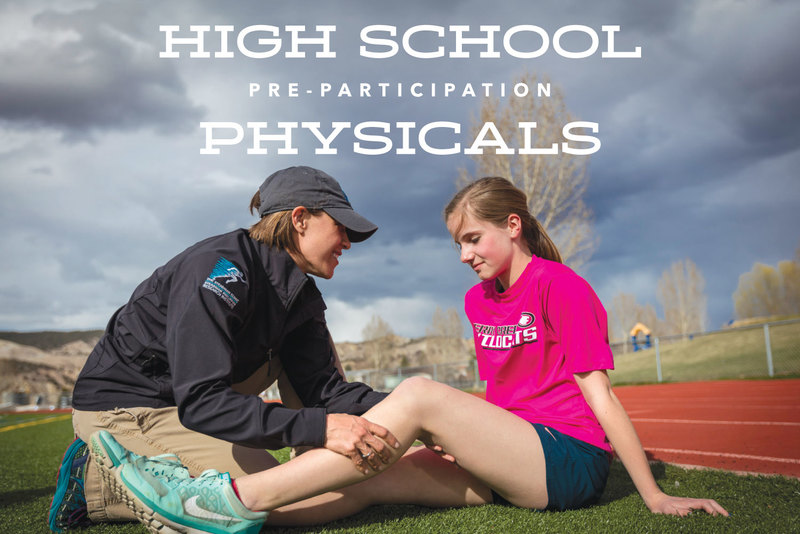News
Expert Traveler Tips
It doesn't take much to feel off balance when you're on the road (or in a plane or on a train). When we change our physical environment slightly or dramatically we can be more sensitive to physical ailments without the benefit of our existing healthcare structure. Sometimes you can't avoid an adventure that's a little under-the-weather but you can plan ahead and be prepared for the issues you're most likely to encounter.
1. MOTION SICKNESS
Lucia London advanced registered nurse practitioner with Vail Valley Medical Center Traveler's Clinic says motion sickness consists of a group of signs and symptoms that develop in response to real or perceived motion.
These include cold sweats nausea hypersalivation vomiting or sensation of body warmth explains London. Motion sickness can result from exposure to movement or from visual suggestion of movement traveling through water on land or in air can trigger motion sickness although sea sickness is most common. Susceptibility to motion sickness varies individually London says but is most common in women especially during pregnancy as well as in children ages 2 to 12 and those who suffer from migraine headaches.
What to Take For Motion Sickness
London recommends taking medications for motion sickness before the symptoms set in so it's important to pay attention to your physical reactions when traveling and plan ahead.
Several over-the-counter prescriptions are available for mild to moderate motion sickness she says including Bonine or Dramamine. These medications can cause drowsiness so driving and alcohol consumption should be avoided. London says that for longer journeys a scopolamine transdermal patch may be necessary it is placed behind the ear and can provide up to 72 hours of medication.
There are some non-medicinal therapies that are appealing to travelers such as acupuncture wristbands London says. Although controlled trials are limited or do not show clear benefits in a number of clinical trials.
How to Avoid Motion Sickness
London recommends the following ways to help stop motion sickness before it starts:
- Select a position in the most stable part of a vehicle such as the mid-point of a ship or the wing seats on a plane. Ensure a seat with good visibility.
- Focus on a distant point or take over driving the vehicle.
- Create good ventilation.
- Avoid reading.
- Eat small low-fat meals avoid alcohol and smoking.
- Avoid becoming overheated.
- Take an over-the-counter motion sickness medication before symptoms set in.
2. EAR PAIN
Barotrauma or ear pain affects those flying especially during ascent and descent as air in the middle ear and sinuses will expand and contract.
London says to facilitate the free flow of air and to prevent pain it is helpful to chew (something like gum for example) and to yawn. She recommends offering a drink to young children and a pacifier to infants.
3. LEG SWELLING
During long flights (four hours or more) London says blood flow in the legs is reduced blood becomes more viscous (thicker) and a blood clot may form causing a deep vein thrombosis (DVT). "DVT is related to multiple factors" says London "such as duration of flight environmental factors in the cabin such as a dry cabin atmosphere and personal risk factors."
Although many episodes of DVT are without symptoms London says some symptoms of the condition may include the following: swelling in the lower or whole leg leg becomes warm or discolored.
Clots in the leg can become detached and travel via the venous circulation to the lungs causing a pulmonary embolism (PE). She says symptoms of a PE include breathlessness chest pain with deep breathing and occasionally coughing up blood.
How To Prevent Leg Swelling
London offers the following advice to prevent leg swelling during travel:
- Wear comfortable loose clothing that is not tight at the waist or knees.
- Get up and walk around the cabin hourly aisle seats are best for this.
- Exercise calf and thigh muscles by extending and flexing ankles and knees.
- Do not cross knees or ankles.
- Drink plenty of fluids.
- Drink alcohol and coffee only in moderation.
- If you have personal risk factors compression stockings are recommended. (Some risk factors include: obesity age greater than 50 late pregnancy or the first 12 weeks postpartum varicose veins recent surgery in the past four to six weeks limb immobilization with casts oral contraception or hormone replacement therapy.)
4. ALTITUDE SICKNESS
Altitude sickness occurs when one ascends more rapidly than the body can adjust to the reduced atmospheric pressure and decreased oxygen delivery to the body's cells at a higher altitude London explains. She says symptoms of acute mountain sickness include headache loss of appetite and fatigue and can progress to nausea vomiting and extreme lassitude (physical weariness).
Non-steroidal anti-inflammatory drugs such as ibuprofen are effective in treating headaches associated with high altitude says London. And they may also prevent headaches when taken a few hours prior to ascent. For some travel itineraries to extremely high altitudes consider the medication Acetazolamide (Diamox) which improves one's acclimatization and does not mask symptoms London adds. She says this needs a prescription and its use should be discussed with your travel practitioner.
How to Acclimate to Altitude
Prevent altitude sickness with London's advice:
- Ascend gradually spending a day in Denver can be helpful.
- Avoid alcohol consumption and stay hydrated with lots of water.
- Participate in mild exercise for the first 48 hours.
- Do not ascend directly to altitudes greater than 9800 feet if possible especially if coming from sea level.
Traveler's Clinic
The VVMC's Traveler's Clinic located in Occupational Health Clinic in Avon next to Avon Urgent Care is a great resource for those planning to travel to foreign countries. In addition to supplying information and administering both recommended and required vaccinations staff members can offer information on diseases that can be contracted through food water and insects as well as advice on specific health concerns and/or risks associated with certain countries.
The clinic is open Monday through Friday 8 a.m to 4:30 p.m. Visit
vvmc.com/travel or call (970) 569.7715 for more information.
More News
-
New!
More

Vail Health and The Steadman Clinic Offer Free Physicals for High School Athletes
Physicals will be offered in both English and Spanish on two dates, May 17 at Battle Mountain High School and May 24 at Eagle Valley High School.
-
New!
More

Good Stress?
“Good stress” sounds like an oxymoron. After all, we’ve always been told stress is bad for our health. However, it’s possible that some stressors can actually be good for us and even enhance our lives.
-
More

Considering Cosmetic Procedures
As we age, our skin loses its elasticity and can leave some feeling less confident in their physical appearance. Cosmetic procedures can empower individuals to enhance their self-esteem and improve their overall quality of life.
